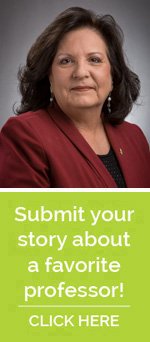 DURHAM – Dr. Peggy Whiting calls teaching “one of the most honorable and humbling professions.”1
DURHAM – Dr. Peggy Whiting calls teaching “one of the most honorable and humbling professions.”1
Which makes it especially fitting that she was honored and humbled this year to receive the Board of Governors Award for Excellence in Teaching. Dr. Whiting is a professor at North Carolina Central University’s School of Education, where she works to prepare the next generation of school counselors.
“Teaching is extremely challenging,” she said in a recent interview. “I view teaching as a privilege, a responsibility, and a calling.”
In her research and teaching, Dr. Whiting pays close attention to the kind of relationships that work best for learning.
Students bring emotion and personal history into the classroom, she stresses, and a good teacher has to be prepared for those. At NC Central, she has pushed to include counseling courses in crisis, grief and trauma as part of the standard graduate curriculum, since school officials must respond to those conditions to establish a sound learning environment.
“I am especially proud that I could be one of the first counselor educators to create a legitimate place for this subject,” she said. The expanded course offerings have helped make NCCU a leader in the field.
Her classes often include vivid case studies in counseling, giving future counselors and educators a real-world view of what it takes to shepherd their students through difficult moments.
Having taught at Vanderbilt University, Winthrop College, and NC Central, Dr. Whiting has worked with a truly diverse range of students through the years. She credits that wealth of experience with her success in the classroom today.
“The No. 1 highlight in teaching I have experienced is to have interacted with such a rich collection of students,” she said in a campus interview.
Staying up-to-date on teaching practice takes work. Dr. Whiting points out that research on classroom and counseling techniques has evolved constantly since she entered the field in 1986, so good educators have an obligation to stay engaged.
“I committed to being a lifelong learner when I chose to become a teacher,” she said. “I feel an ethical responsibility to be informed, to stay abreast, and to participate as a teacher and as a student.”
That sense of responsibility continues to pay off for NC Central students, and all of the K-12 schools they will eventually serve.
1 http://www.nccu.edu/news/index.cfm?id=B554BC55-15C5-F8D8-3AEB5209670FDA12.

Leave a Reply